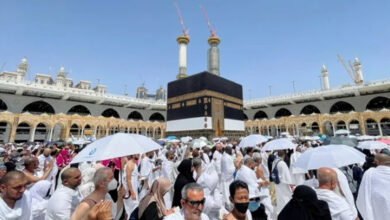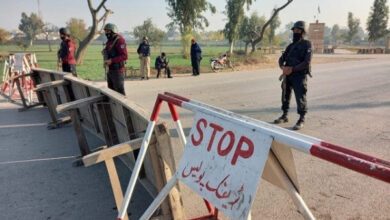Experts Weigh In on the Impact of Governor’s Rule in Khyber Pakhtunkhwa Amid PTI Protests

Islamabad:Pakistan Tehreek-e-Insaf (PTI), led by its founder Imran Khan, has been staging frequent protests and marches towards Islamabad, calling for the release of the former prime minister. These protests, led by Khyber Pakhtunkhwa’s Chief Minister Ali Amin Gandapur, have led to major clashes between PTI workers and security forces, resulting in deaths and injuries on both sides. In response, the federal government has been exploring various options to handle the situation, including the possibility of imposing Governor’s Rule in Khyber Pakhtunkhwa and even banning PTI as a political party.
Several political analysts have weighed in on the potential consequences of imposing Governor’s Rule in the province, which is currently under PTI’s control. Here’s a summary of their perspectives:
**1. Challenges for the Federal Government**
Senior analyst Mujib-ur-Rehman Shami highlighted that the federal government faces a tough decision as the current political situation in the country is highly volatile. He pointed out that there is no significant political opposition to PTI in Khyber Pakhtunkhwa at the moment, which makes it difficult for the government to find a viable solution. Shami emphasized that, if protests continue, the government may struggle to control the situation.
**2. Potential for Increased Clashes**
Shami also expressed concerns that if Governor’s Rule were imposed, it could lead to heightened clashes between PTI supporters and security forces, making the situation harder to control. However, he noted that the federal government could reduce PTI’s ability to mobilize protests, as government resources would no longer support the provincial administration. Despite this, the potential for violent confrontation would remain.
**3. Legal and Constitutional Concerns**
Absar Alam, another senior analyst, argued that imposing Governor’s Rule in Khyber Pakhtunkhwa is legally and constitutionally problematic. He suggested that such a move would likely backfire, benefiting PTI, which would be seen as a “political martyr” in the eyes of its supporters. Alam pointed to historical examples, such as the imposition of Governor’s Rule in Punjab in 2009, when it ultimately harmed the ruling party more than it helped.
**4. Impact on Political Stability**
Absar Alam also stressed that political issues should be resolved through political means rather than resorting to extreme measures like Governor’s Rule. He argued that imposing such a decision would undermine the legitimacy of the federal government and could destabilize the province further. Alam emphasized that peace can only be achieved if all political parties are on the same page.
**5. The Political Fallout of Governor’s Rule**
Journalist Ahmed Waleed warned that imposing Governor’s Rule in Khyber Pakhtunkhwa would likely turn the entire province against the federal government, exacerbating the political crisis. He pointed out that CM Ali Amin Gandapur has been actively working with establishment figures to resolve tensions, and imposing Governor’s Rule could jeopardize these efforts. Waleed suggested that the political repercussions for the federal government and opposition parties, particularly Pakistan Muslim League-Nawaz (PML-N) and Pakistan Peoples Party (PPP), would be severe.
**Conclusion**
As the political and security situation in Pakistan remains tense, experts agree that imposing Governor’s Rule in Khyber Pakhtunkhwa may offer short-term relief in reducing protests but could lead to longer-term instability. The key to resolving the crisis, they argue, lies in political dialogue and cooperation rather than authoritarian measures.





